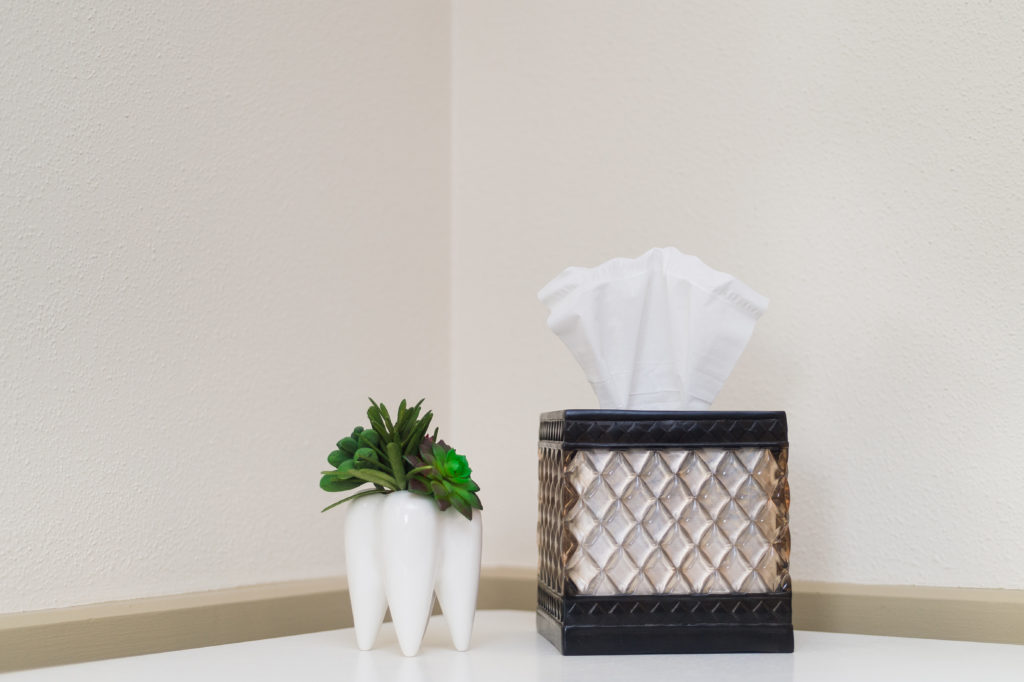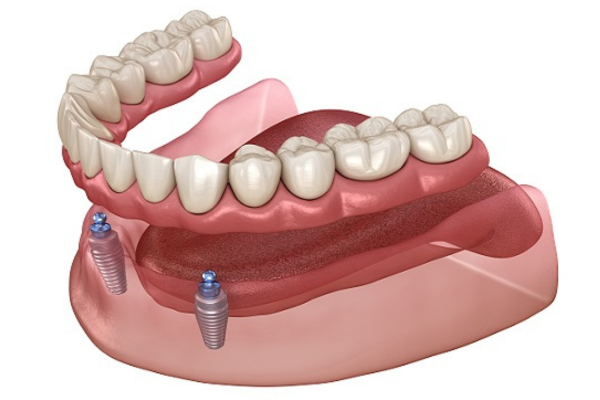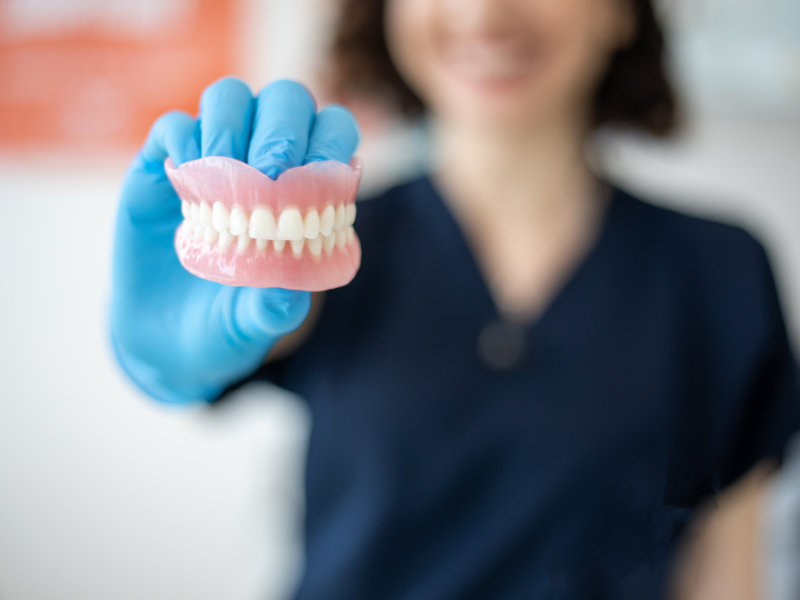
Implant-Supported Dentures
Restoring To a healthy Chew
Passionate, Dedicated, Friendly
What are Implant-Supported Dentures?
Traditional complete dentures (those that replace all of your natural teeth) are held in place because they are custom fit to mold to your gums and the bone ridges in your mouth. They also depend on adequate saliva-production to form a seal.
But dentures that sit on the lower ridge of your mouth have a more difficult time staying in place due to both interference from the tongue and a smaller surface area than the upper ridge. As a result, some people who have traditional complete dentures may experience speech challenges or clicking when they talk. They also may deal with slippage, which could be embarrassing in social situations.
The solution to problems caused by traditional dentures are those that are supported by implants. An implant-supported denture is kept in place with dental implants that are embedded in your jawbone.
There are two different types of implant-supported dentures: those that can be removed and those that are permanently fixed to your jaw.
Snap-On Dentures
Snap-on dentures are held in place by 2 to 6 implants and can be removed for cleaning and sleeping. The most common type of snap-on denture includes a metal component that is similar to a snap-on button on a shirt, and the denture can be either snapped on or snapped off at the user’s convenience. Snap-on dentures are less expensive than permanent implant-supported dentures.
All-On-Four Dentures
All-On-Four dentures are permanently attached to your jawbone and can be removed only by a dental professional. Four implants on the upper jaw and four on the lower are required for this type of complete permanent denture. All-On-Four dentures are more expensive than the snap-on alternative, but they are non-removable and fixated into place.
What is the Procedure for Getting Implant-Supported Dentures?
Snap-on Implant Process
- Bar-retained – A curved metal bar is attached to the implants and then clips are added that will attach to the dental prosthesis.
- Ball-retained – This method is similar to the “button snap” example used above. Ball-shaped attachments are connected to the implant and fit into a socket on the denture so that it will literally snap on or off.
All-On-Four Process
After numbing the patient, the dentist will strategically place four implants – two angled at the back of the mouth and two at the front – into the jaw arch. The incision sites are closed with dissolvable stitches and then the patient is fitted for temporary dentures. The patient will wear the temporary dentures during the healing process, which can take about six months. The reason why the All-On-Four procedure is sometimes called “teeth-in-a-day” is because the implants are placed in one surgery and there is minimal pain afterward Typically an over-the-counter medication like Tylenol or Advil will suffice. Of course, immediate aftercare will require that the patient is careful not to disturb the stitches, and your dentist will likely prescribe an antibiotic to prevent infection. After healing is complete, the dentist will fit the patient with permanent dentures that are secured with small screws.How Do You Take Care of Implant-Supported Dentures?
Snap-on dentures need to be cleaned every night before bed. If tartar (hardened bacterial plaque) builds up on the denture it won’t fit as well as it should. Your dentist can clean the denture during your regular visit.
Repeatedly inserting and removing the denture will eventually make it less stable. Visit your dentist so that adjustments can be made.
For fixed All-On-Four dentures, you must make sure to thoroughly remove any food that could get trapped underneath it. We recommend using a Waterpik or threader floss in addition to brushing the denture and your gums twice a day.


What Are the Advantages of Implant-Supported Dentures vs. Traditional Dentures?
- Implant-supported dentures can help to retain bone because they put pressure on your jaw. Traditional dentures just sit on the bone, and since the jaw is not being used, it will eventually shrink.
- Implant-supported dentures provide better chewing ability and allow you to eat more of the foods you enjoy.
- Implant-supported dentures are more stable and secure, which means that they won’t slip or click while talking. They also have a more natural look in your mouth.
Are Implant-Supported Dentures Affordable?
When considering whether implant-supported dentures are affordable, you have to think about the cost to maintain traditional dentures and how permanent implant-supported dentures can help you avoid costly dental procedures in the future. And, as always, it’s important to weigh the quality-of-life benefits that implant-supported dentures offer and the overall value of the investment.
Plus, each patient is different so the costs will vary. Depending on the type of dental insurance you have, you may get partial coverage for the procedure. But if you need help with financing, the team at Osseo Family Dental can arrange so that payment will be easier for you to manage.
Am I a Candidate for Implant-Supported Dentures?
The best candidates for implant-supported dentures are in good oral and overall health and have enough jawbone density to accept the implants. However, a bone-graft procedure is a solution to insufficient existing bone.
The best way to determine if you’re a good candidate for implant-supported dentures is to schedule an appointment with your dentist. During the exam, the dentist will take x-rays, assess your teeth and gums, and ask you about your medical history. If you’d like to schedule an examination or learn more about implant-supported dentures, call Osseo Family Dental or contact us here.
